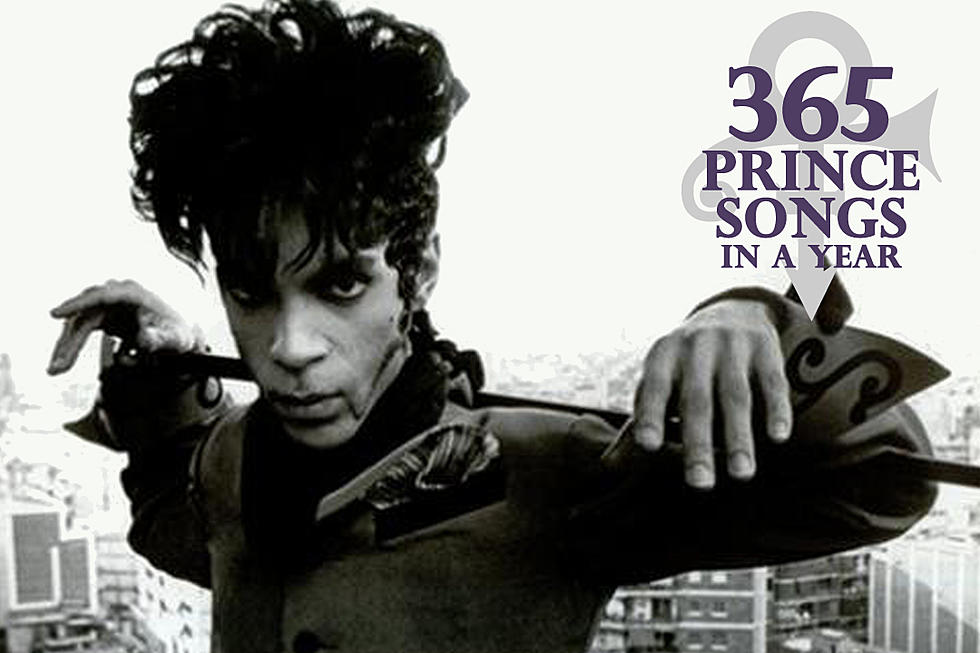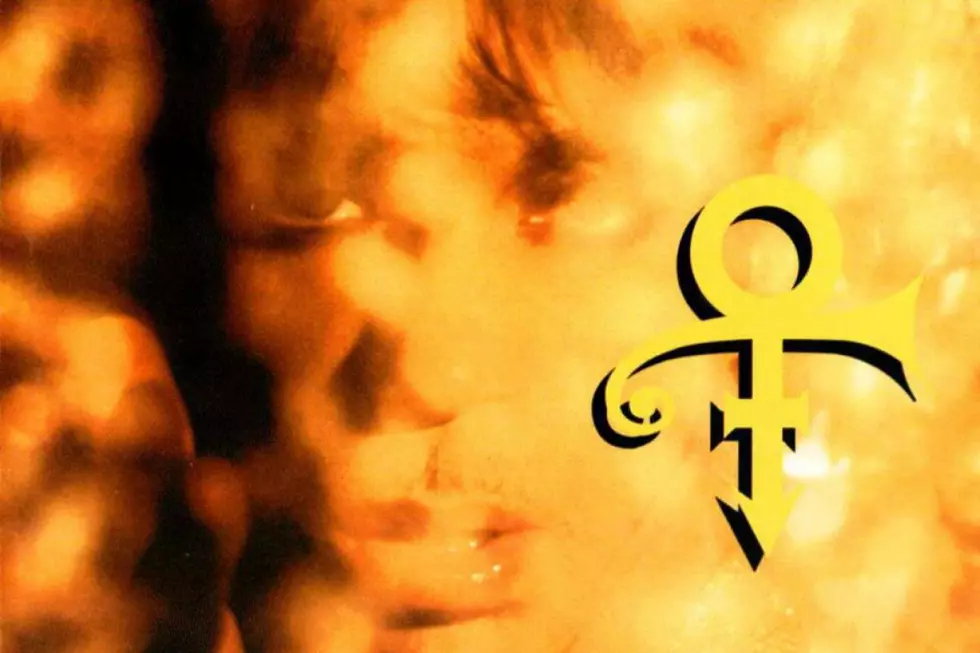
Prince Strives to ‘Letitgo’ as Label Battle Rages: 365 Prince Songs in a Year
To celebrate the incredibly prolific, influential and diverse body of work left behind by Prince, we will be exploring a different song of his each day for an entire year with the series 365 Prince Songs in a Year.
Changing his name to an intentionally unpronounceable symbol in June of 1993 wasn't enough to give Prince a victory in what had become a nasty public battle to escape his record deal. So for his next trick, he decided to throw his own funeral.
On the same day in March of 1994, he submitted two albums to Warner Brothers as part of an effort to fulfill his remaining contractual obligations as quickly as possible. Under his grand plan the first, entitled Come, would be released using his famous former name. Then the second, The Gold Experience, would be the first full-length effort under his new moniker. (To further speed things up, he also allowed the label to release his long-shelved Black Album later the same year.)
In press interviews surrounding Come's release, Prince took pains to portray the music on the album as old news, leftover material from his famous vaults, while chatting excitedly about the freedom and new innovations that could be heard in the grooves of The Gold Experience.
To further drive the point home, Come's stark black and white album cover pictured Prince solemnly standing in front of cemetery gates, and included his real birth year (1958) and a symbolic death date of 1993 under his name. "Prince did retire," he insisted to Vibe. "He stopped making records because he didn't need to anymore."
But the truth is that while the bulk of the songs on the dark, spare, mature and impressively cohesive Come were written shortly before or right around the time of Prince's name change (largely for a 1993 musical adaption of Homer's Odyssey entitled Glam Slam Ulysses), the record's lead single "Letitgo" was reportedly written and recorded a full eight months after the switch.
Perhaps Prince couldn't stop himself from trying to deliver the best music possible anytime either of his names were set to appear on an album cover. Or maybe he couldn't pass up the chance to publicly present himself in a positive light - in this case, as a changed man and a caged bird who needed to be freed in order to fully spread his new wings.
As he told Interview magazine a few years later, "I was doing my best to fulfill my contract. ...If you check the video for the [1992 single] "7," you will see [his former wife] Mayte and I walking through the doors hand-in-hand and the dove exploding. That was when I spiritually checked out of the whole situation; but I did what I had to do."
Over a languid beat accented by Eric Leeds' somehow pleasantly incessant flute, "Letitgo" finds Prince sing-speaking a confession about his selfish former ways, with key phrases punctuated by brief drum flourishes: "All my life I've kept my feelings deep inside / Never was a reason to let somebody know / Lover here, lover there, who cried? Who cared? Foolish pride / Never was a good seat at any of this man's shows." (That last part is absolutely impossible to take literally for anybody who's been to a Prince concert, of course, but makes for a pretty great metaphor.)
Even as "Letitgo" so publicly stated Prince's desire to start a new chapter in his personal and professional life (as the chorus says, to let his feelings show and to "lay back and let the vibe just flow"), the public squabbling between he and Warner Brothers was far from over. In print ads promoting the release of Come, the label publicly addressed the tension between themselves and their disgruntled star, using symbols to poke fun - gentle or pointed, depending on your judgment - at his name change:
He fired back with a similarly configured ad promoting 1-800 New Funk (yet another 1994 collection of largely Prince-written songs, performed by artists such as George Clinton, Mavis Staples and Nona Gaye), drawing a distinction between himself and his former label by promising to treat the artists on NPG Records with respect.
It would be over a year before Warner Brothers allowed Prince to release The Gold Experience, which he had originally hoped to unveil on the same day as Come. After giving them one more "contractually obligated" album (Chaos and Disorder) in 1996, he earned his freedom and celebrated with a triple album – appropriately named Emancipation – released on his own label later that same year.
Prince: 40 Years of Photographs, 1977-2016
More From Diffuser.fm









